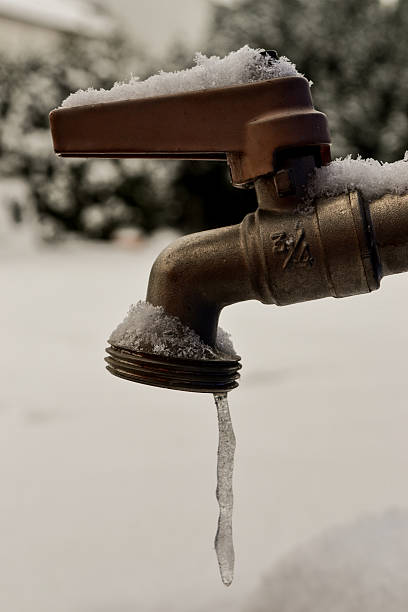Important Advice for Preventing Frozen Plumbing in Winter Conditions
Important Advice for Preventing Frozen Plumbing in Winter Conditions
Blog Article
Are you trying to find advise about Winter Plumbing Precautions: Preventing Frozen Pipes?

Winter can ruin your plumbing, particularly by freezing pipelines. Right here's just how to avoid it from happening and what to do if it does.
Intro
As temperatures decline, the threat of frozen pipelines increases, possibly leading to expensive fixings and water damage. Comprehending just how to prevent frozen pipelines is critical for house owners in cool climates.
Understanding Icy Pipes
What creates pipes to freeze?
Pipelines ice up when revealed to temperatures below 32 ° F (0 ° C) for extended periods. As water inside the pipes freezes, it broadens, putting pressure on the pipe walls and potentially causing them to break.
Risks and problems
Frozen pipelines can lead to water supply disruptions, home damage, and pricey repair services. Ruptured pipes can flooding homes and trigger comprehensive structural damages.
Signs of Frozen Pipes
Recognizing frozen pipes early can prevent them from rupturing.
Just how to determine icy pipes
Seek decreased water flow from taps, unusual odors or sounds from pipes, and visible frost on subjected pipes.
Avoidance Tips
Protecting prone pipelines
Cover pipelines in insulation sleeves or make use of warmth tape to shield them from freezing temperature levels. Concentrate on pipelines in unheated or external locations of the home.
Home heating techniques
Maintain indoor areas appropriately warmed, particularly areas with pipes. Open cabinet doors to permit cozy air to flow around pipes under sinks.
Safeguarding Outdoor Pipes
Garden hoses and exterior taps
Detach and drain garden tubes before wintertime. Install frost-proof spigots or cover exterior faucets with protected caps.
What to Do If Your Pipes Freeze
Immediate actions to take
If you believe frozen pipes, keep taps open up to alleviate stress as the ice melts. Use a hairdryer or towels taken in hot water to thaw pipelines slowly.
Long-Term Solutions
Structural adjustments
Think about rerouting pipelines away from outside walls or unheated locations. Add additional insulation to attic rooms, cellars, and crawl spaces.
Updating insulation
Purchase high-grade insulation for pipes, attics, and walls. Appropriate insulation assists preserve constant temperatures and reduces the risk of frozen pipelines.
Verdict
Stopping frozen pipelines needs aggressive procedures and quick responses. By understanding the causes, indicators, and safety nets, home owners can secure their pipes throughout winter.
Helpful Tips to Prevent Frozen Pipes this Winter
UNDERSTANDING THE BASICS: WHY PIPES FREEZE AND WHY IT’S A PROBLEM
Water freezing inside pipes is common during the winter months, but understanding why pipes freeze, and the potential problems it can cause is crucial in preventing such incidents. This section will delve into the basics of why pipes freeze and the associated problems that may arise.
THE SCIENCE BEHIND FROZEN PIPES
When water reaches freezing temperatures, it undergoes a physical transformation and solidifies into ice. This expansion of water as it freezes is the primary reason pipes can burst. As the water inside the pipe freezes, it expands, creating immense pressure on the walls. If the pressure becomes too great, the pipe can crack or rupture, leading to leaks and water damage.
FACTORS THAT CONTRIBUTE TO PIPE FREEZING
Low Temperatures: Extremely cold weather, especially below freezing, increases the risk of pipes freezing. Uninsulated or Poorly Insulated Pipes: Pipes located in unheated areas, such as basements, crawl spaces, or attics, are more prone to freezing. Insufficient insulation or lack of insulation altogether exacerbates the problem. Exterior Wall Exposure: Pipes running along exterior walls are susceptible to freezing as they encounter colder temperatures outside. Lack of Heating or Temperature Regulation: Inadequate heating or inconsistent temperature control in your home can contribute to frozen pipes. PROBLEMS CAUSED BY FROZEN PIPES
- Pipe Bursting: As mentioned earlier, the expansion of water as it freezes can cause pipes to burst, resulting in significant water damage.
- Water Damage: When pipes burst, it can lead to flooding and water damage to your property, including walls, ceilings, flooring, and personal belongings.
- Structural Damage: Prolonged exposure to water from burst pipes can compromise the structural integrity of your home, leading to costly repairs.
- Mold and Mildew Growth: Excess moisture from water damage can create a favorable environment for mold and mildew growth, posing health risks to occupants.
- Disrupted Water Supply: Frozen pipes can also result in a complete or partial loss of water supply until the issue is resolved.
WHY CERTAIN PIPES ARE MORE PRONE TO FREEZING
- Location: Pipes located in unheated or poorly insulated areas, such as basements, crawl spaces, attics, or exterior walls, are at higher risk of freezing.
- Exterior Pipes: Outdoor pipes, such as those used for irrigation or exposed plumbing, are particularly vulnerable to freezing as they are directly exposed to the elements.
- Supply Lines: Pipes that carry water from the main water supply into your home, including the main water line, are critical to protect as freezing in these lines can affect your entire plumbing system.
- Underground Pipes: Pipes buried underground, such as those connected to sprinkler systems or outdoor faucets, can be susceptible to freezing if not properly insulated.
https://busybusy.com/blog/helpful-tips-to-prevent-frozen-pipes-this-winter/

I am just very involved in How to prepare your home plumbing for winter weather and I hope you enjoyed reading the entire page. Do you know about another person who is occupied with the niche? Be sure share it. Thank-you for taking the time to read it.
Book Maintenance Report this page